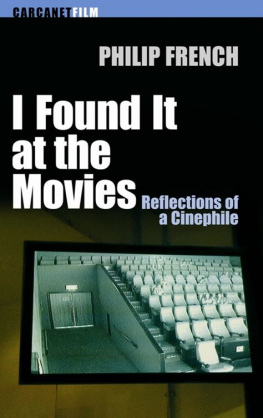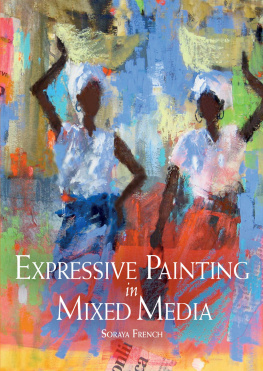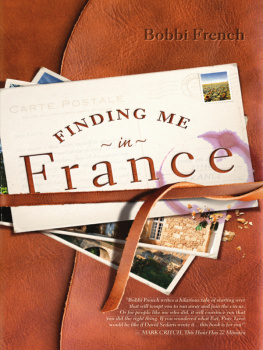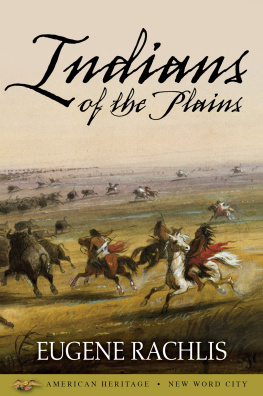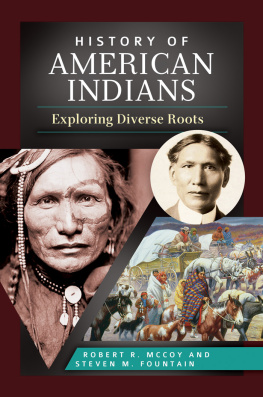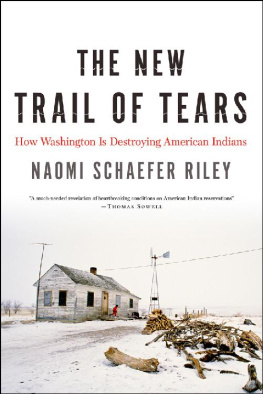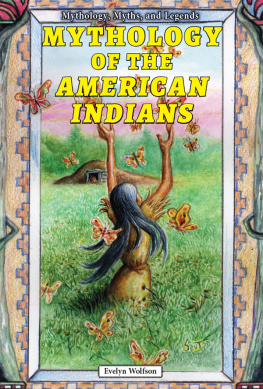Policing American Indians: A Unique Chapter in American Jurisprudence
Laurence Armand French
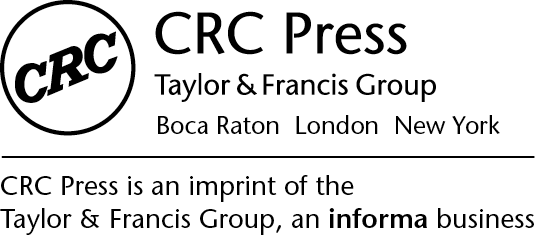
CRC Press
Taylor & Francis Group
6000 Broken Sound Parkway NW, Suite 300
Boca Raton, FL 33487-2742
2015 by Taylor & Francis Group
CRC Press is an imprint of Taylor & Francis Group, an Informa business
No claim to original U.S. Government works
Version Date: 20150904
International Standard Book Number-13: 978-1-4987-6182-6 (EPUB)
This book contains information obtained from authentic and highly regarded sources. Reasonable efforts have been made to publish reliable data and information, but the author and publisher cannot assume responsibility for the validity of all materials or the consequences of their use. The authors and publishers have attempted to trace the copyright holders of all material reproduced in this publication and apologize to copyright holders if permission to publish in this form has not been obtained. If any copyright material has not been acknowledged please write and let us know so we may rectify in any future reprint.
Except as permitted under U.S. Copyright Law, no part of this book may be reprinted, reproduced, transmitted, or utilized in any form by any electronic, mechanical, or other means, now known or hereafter invented, including photocopying, microfilming, and recording, or in any information storage or retrieval system, without written permission from the publishers.
For permission to photocopy or use material electronically from this work, please access www.copyright.com or contact the Copyright Clearance Center, Inc. (CCC), 222 Rosewood Drive, Danvers, MA 01923, 978-750-8400. CCC is a not-for-profit organization that provides licenses and registration for a variety of users. For organizations that have been granted a photocopy license by the CCC, a separate system of payment has been arranged.
Trademark Notice: Product or corporate names may be trademarks or registered trademarks, and are used only for identification and explanation without intent to infringe.
Visit the Taylor & Francis Web site at http://www.taylorandfrancis.com
and the CRC Press Web site at www.crcpress.com
CRC Press is a premier publisher of scientific, technology and medical content, reaching around the globe to publish the pioneering achievements of science that provide researchers, professionals, and students with the resources they need to make further advances. CRC Press is a member of Taylor & Francis Group, an informa business.
For more authoritative books in your field and for in-depth information about CRC Press books, visit www.crcpress.com
- Join our email list to receive exclusive, unadvertised discounts and alerts when new books publish in your field
- Visit Featured Authors to learn about your favorite author with detailed bios, news about their work, and discussions of their research
- Read the latest book reviews from industry experts, influencers, and thought leaders about STM (Science, Technology and Medicine) reference and textbooks
The tables in this ebook have been modified to enhance the reader experience. On compatible devices, the enhancement should keep the header rows visible as you scroll through a table.
Please report any issues with this ebook or any desired enhancements to the .
www.crcpress.com
In memory of Charles Jim Hornbuckle (January 30, 1947May 19, 2014)
(Eastern Band of Cherokee Indians)
Friend, colleague, and mentor
Acknowledgment
A topic such as this requires a mix of academic research and field experience. The academic element involves the disciplines of criminology, sociology, anthropology, historical analysis of geopolitics, and cultural psychology, which my training at the University of New Hampshire and the University of Nebraska provided. Equally important was the invaluable experience I acquired through my interactions with American Indian groups. This began with my first full-time teaching position in 1972 at Western Carolina University, located a mere 26 miles from the Qualla Boundary of the Eastern Band of Cherokee Indians. Jim Hornbuckle, a student in my criminology class, got me involved with the reservation. An enrolled member of the tribe (father, Eastern Cherokee; mother, Western Cherokee) and former tribal police officer, Jim went on to become the director of the Cherokee Mental Health and Alcohol Program, where I served as an advisor. Jim and other nontraditional Cherokee students, Reuben Teesatuskie, Karen French, Yvonne Bushyhead, and Richard Yogi Crowe, encouraged me to start the Cherokee Student Organization at Western Carolina University as well as establish a satellite campus on the reservation. Cherokee elders Johnson Catolster and Elsie Bugga Martin served as tribal advisors for our educational and social programs. I have continued my affiliation with the Eastern Cherokee to the present. Jim went on to become an associate magistrate in the Cherokee Tribal Court, juvenile court counselor, and administrative court counselor, and later served as the clinical supervisor of the Indian Health Service Regional Youth Treatment Center located on the reservation, serving troubled Indian youth throughout Indian country. While at Western Carolina University, Jim Hornbuckle and I established a lifelong relationship with Rupert Costo and Jeannette Henry-Costo, American Indian founders of the American Indian Historical Society.
My initial work with the Eastern Cherokee, notably the inquiry into the murder of three young Cherokee men while they were held in the local jail for whites, effectively ended my tenure at Western Carolina University (19721977), but I was fortunate to move on to the University of Nebraska, teaching at the Lincoln campus. Here, I had the opportunity to work with the few American Indian faculty members at the University of Nebraska, Teresa LaFromboise (Miami Tribe of Oklahoma) and Webster Robbins (Western Cherokee), and John Cross (Western Seminole) at the University of Omaha. While in Nebraska, I became involved with the Nebraska Indian Commission and the Lincoln Indian Center, serving on the criminal justice and mental health boards. My main field contact was Charles LaPlante (Santee Sioux), along with Perry Wounded-Shield (Lakota Sioux) and Marshall Prichard (Ponca), executive director at the Lincoln Indian Center. It was during this time (19771980) that we worked with Walter Echo-Hawk of the Native American Rights Fund on bringing traditional Indian customs to the Nebraska Penal Complex, as well as conducting field visits to the tribes in Nebraska and North and South Dakota for the Nebraska Indian Commission. Charles LaPlante later moved back to the Santee Reservation, where he became a tribal leader and elder, having completed four Sun Dances and raised his children in the traditional ways. His son Whalen went on to become a tribal police officer and is currently head of security at the Santee casino. His daughter Liz is a schoolteacher. All of his offspring have close traditional ties to the reservation in Niobrara, Nebraska, and Wagner, South Dakota.
My experience working with contemporary social issues plaguing American Indians compelled me to embark on a second doctorate, this time in cultural psychology. While gaining clinical experience as a staff psychologist working with the New Hampshire Department of Health and Human Services (19801989), I continued my involvement with American Indian issues via colleagues Jeff Gaudet (Micmac), psychologist (University of CaliforniaBerkeley), New Hampshire state probation officer, and federal law enforcement officer, division of Immigration and Customs Enforcement; and Becky Storey (Sioux), community planning, Federal Emergency Management Agency. Armed with this clinical experience, I took a teaching position at Western New Mexico University and continued my involvement with American Indian groups (Navajo, Apache, Pueblo, Yaqui, Mestizo), again organizing a Native American student organization and working on critical issues such as substance abuse and law enforcement with colleagues Peter Garcia (Hopi Pueblo); Paul Lucero (Laguna Pueblo), Western New Mexico University police, captain, Isleta Police Department; Abe Maria Rama (Navajo), tribal leader and peacemaker elder; Dennis Lorenzo (Acoma Pueblo), tribal priest, substance abuse counselor, and human resources manager; Patsy Madrid (Yaqui/Mestizo), Curanderismo, community leader; Arturo Romero (Navajo/Mestizo), U.S. Marine (Vietnam veteran), substance abuse counselor, trainer, and administrator; and Harry L. Begay (Navajo), head counselor and administrator, Fort Wingate Indian Boarding School. We reinstated the annual summer Alcohol Treatment Institute at Western New Mexico University that served Anglos, Hispanics, and American Indians within the region (Arizona, New Mexico, and west Texas). I also had the opportunity to work with members of the San Carlos Indian Reservation in Arizona as part of my private clinical practice housed in Safford, Arizona. Another valuable experience was serving as the police psychologist for the police academy at Western New Mexico University and for the Isleta Pueblo Reservation. I also was a contract psychologist for U.S. Border Patrol personnel (mainly family members) stationed along the New MexicoMexico border.



